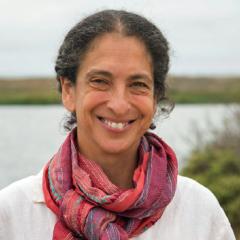Unpacking our social identities and privilege
At the fall retreats held in New England and California this year, we welcomed the 2016 Fellows and were joined by alumni and colleagues over the weekend. The fall retreats have evolved over recent years to be part of an intentional leadership training program for all new Fellows. While the spring retreat reinforces our commitment to assist Fellows in getting their message to external audiences in DC and beyond, the fall retreats offer an inner exploration of leadership.
Rockwood Leadership Institute, our long-time training partner at the fall retreats, integrates considerations of equity, power and privilege into all aspects of their leadership training, especially their week-long programs. This year we included a new module that allowed Fellows to explore their social identities and how those identities may have conferred barriers to, or privilege in, achieving their success. Social identities can include race, gender, religion, sexual orientation and more. This was the first time we’d elevated these issues directly into the fall training. While we created a safe space with Rockwood’s help to introduce these subjects, it was also clear that our best learning can come from having a diverse set of experiences to reflect upon.
Many alumni and Fellows shared that this was the best retreat they had attended, offering a chance to reflect on how to continue to grow as leaders as we recognize the pervasiveness of systemic racism and other biases in the systems within which we live and work. As we begin to share in more of these learning experiences together, we can awaken to our humanity and become leaders who are prepared not only to embrace difference and be inclusive, but to use the power we have to help transform our organizations and systems for greater equity. We see social equity as a crucial dimension of environmental improvement.
As the Switzer Foundation explores offerings for Fellows, we are also reflecting on our own practices. I have been reaching out to Fellows individually for support and guidance, and invite you all to share your insights into how we can better integrate these dimensions into our programs and trainings. Please feel free to leave your comments here or email me privately. We will be seeking Fellow input in other ways in coming months, and sharing more resources on how we can all address systemic inequities, so please stay tuned!

